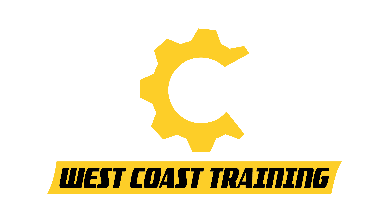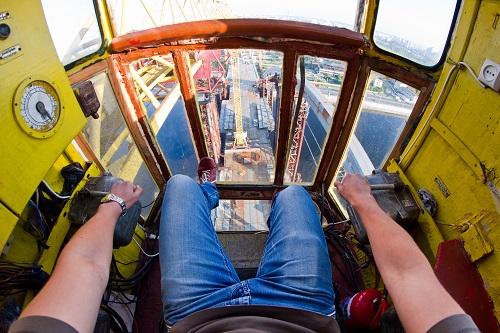
What You Can Expect to Learn for the Tower Crane Certification

Tower cranes are important pieces of machinery on most major construction sites. They save time and money by efficiently moving heavy loads, such as large tools and building materials. But because of their size and power, they can pose safety hazards, which is why the Occupational Safety and Health Administration (OSHA) recently passed new regulatory standards making it necessary that only certified individuals operate tower cranes on construction sites.
The tower crane certification will not only take your career in construction to the next level; it will also prove you are qualified, employable, and officially recognized by the National Commission for The Certification of Crane Operators (NCCCO). Receiving a tower crane certification shows that you have mastered the operation of the machine and understand how to properly use it with the highest standard of safety.
The NCCCO is a non-profit organization that was founded in 1995 with the goal of developing effective performance standards for safe crane operation in all segments of general industry and construction. NCCCO requires two tests in order to become certified: a written and a practical. West Coast training is an approved NCCCO testing facility and through our 8-week NCCCO Crane Operator/rigging training course, students receive a hands-on approach that allows them to excel during the examination process.
With the successful completion of this program, you will not only become tower crane certified, but also receive eight other NCCCO certifications, setting you up for success in the construction industry.
If you are thinking about becoming tower crane certified, here is what you can expect to learn when preparing for the tower crane certification:
Site
In order to operate a tower crane safely and efficiently, it’s important for you to become familiar with analyzing the location of the crane. You will learn how to evaluate the cranes supporting surface and how to protect the cranes’ foundation.
In addition, you must be able to assess the surrounding area. That includes examining the site for adequate space for outriggers and tail swing, power lines, air-rights, and other systems that pose a risk to the safety of the crew, general public, and yourself.
You will also learn the basics of power sourcing, fusing, disconnects, lighting protection, and grounding. Learning proper site evaluation will allow you to make safe judgments before operating a tower crane and site assessment is a knowledge area you need to know for the tower crane certification.
Erection, Climbing, and Dismantling
A key part of passing the tower crane certification is to really know and understand the configurations of a tower crane. You will learn to properly install everything from bolting connections, internal climbing collars, support beams, wedges, and climbing apparatus.
It’s also necessary to become knowledgeable about the safety conditions for erecting, climbing, dismantling, and operating cranes. This includes knowing maximum windspeeds, maximum freestanding height, and the minimum and maximum tie-in spacing allowed. You will also learn proper climbing procedures to keep yourself and your crew safe.
Operations
It’s always important to know and follow regulations set by OSHA and ASME. You will learn the proper procedures for shutting down an unattended crane, inspecting conditions of a tower crane, and keeping a record of those conditions, operating in different weather conditions, operating with special conditions, and emergency response procedures.
You can expect to learn standard hand signals set by OSHA and when to communicate with the construction crew, management, and other signal persons.
Becoming educated on basic operations is not only important for safety, but it also assures that the construction site complies to standards set by OSHA and ASME, organizations that regulate health, safety, and labor.
Technical Knowledge
There’s some technical knowledge that will be important for you to learn before obtaining a tower crane certification. Key points, such as basic safety procedures, tower crane jargon, metric units, and U.S. customary units are all necessary to know and understand for the tower crane certification.
You will also be educated on basic machine power flow systems, like mechanical, electrical, hydraulic, and combination. If you are serious about obtaining a tower crane certification then you must become familiar with the function, limitations, and characteristics of tower cranes, all of which require general technical knowledge.
Hands-on Experience
Most importantly, when you attend school, you will receive real-life experience using a tower crane. For the practical portion of the tower crane certification, you have the choice to use either a Hammerhead, Luffing jib, or Self-erecting tower crane. By the end of the course, you will know how to use these types of cranes and develop the skills of trolley traveling, hoisting, swinging, and combination multifunction operations.
General NCCCO Policies:
Candidates must also comply with certification policies. Those include:
- Be at least 18 years of age
- Meet standards set by ASME B30 physical requirements
- Comply with the NCCCO substance abuse policy and code of ethics
These policies are laid out in more detail in the Candidate Handbook for tower crane operators and are useful to know as you begin researching the best training centers to attend.
When preparing for the tower crane certification, you will become familiar with everything relating to tower cranes, safety, communication, and regulations. Preparing for the tower crane certification is important because the tests are not easy, and they’re not supposed to be!
NCCCO wants to make sure that only highly qualified candidates become certified so that every major construction site is safe.
It’s essential that you master all there is to know about operating a tower crane, so if you are interested in becoming certified but want a leg up, consider going to crane school. By committing your time and energy into the best training school, you will ensure a successful career in construction and maintain a safe environment no matter where the job takes you.
